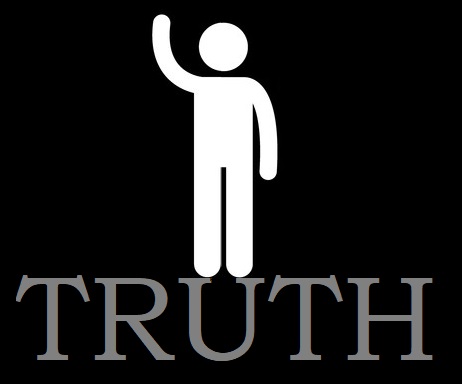Exceeding in Sincerity
By Anthony Casperson
6-24-23
In my first time playing the game Sheriff of Nottingham, I won by using an unconventional tactic.
The game is played by 3-5 individuals, all of whom take a turn being the eponymous sheriff in each of the 2-3 rounds of play. (The amount of rounds depends upon the number of people.) Players take on the role of vendors attempting to bring goods into Nottingham in order to sell them in the market. Although, some of the goods one could possibly smuggle into the city are contraband—such as crossbows for the use of Robin Hood’s men.
Each player must declare a type of good and the number of them in their bag to that round’s sheriff. If the sheriff lets you go without looking in the bag, you’re safe for the round, and everything—including any contraband—can go into your stall, earning you points. However, if the sheriff should happen to open your bag and catch you in a lie about the goods, you must pay a penalty to them. And toss the contraband into the discard pile. On the other hand, if the sheriff opens your bag, only to discover that you told the truth about your bag, then they must pay you for the damages. Plus, everything goes into your stall as usual. At the end of the game, the one with the most money and value of goods is the winner.
So, what was the unconventional tactic I used in my first game?
I told the truth every round. No illicit goods. No lying about the type of items in the bag. And never once tried to pull a fast one over on the sheriff of the round. The other three players saw me continue to tell the truth each round, and figured that their time as the bag checker would be my moment to smuggle something in. And I ended up getting paid turn after turn.
Being a man of my word and never trying to find a loophole in my statements led me to victory.
This idea of sincerely speaking our intentions is the central point of our passage this week, Matthew 5:33-37. We’re dealing with the fourth “You have heard it said…, but I say…” of the chapter as we continue in our series, “Summer on the Mount.”
In a sense, this section about vows and being true to our word flows naturally out of the previous section that spoke about marriage and divorce, but takes on its own direction. Specifically, because of how blatant the loopholing of the Pharisees was in their supposed uprightness of word and deed. (Remember, this end section of Matthew 5 is about having a righteousness that exceeds that of the Pharisees and scribes.)
Jesus says to his audience that they had heard it said, “You shall not swear falsely, but shall perform to the Lord what you have sworn.” While the early part of that—“You shall not swear falsely”—does come directly from God, the words that follow it are a part of the Pharisees’ addition. And an addition that allows them an aircraft-carrier-sized loophole.
The Pharisees would state that only a vow made in the name of God was binding. If they made the oath in the name of something that made you think of God, but wasn’t him—such as heaven—then that was “a lesson for the other guy to read the fine print better” instead of them being a swindler and con artist. Which is what they actually were in that moment. They’d claim innocence in the whole thing because the other person “had to know” that anything not vowed by the name of God wasn’t binding.
Jesus reigns in this loosening of the command of God back to what it originally meant. The people of God should live with such a character that nothing they say or do is untrue, misleading, “true form a certain point of view,” or an exaggeration with deceptive intent. (Exaggeration for dramatic effect where most people understand that it is indeed an exaggeration doesn’t fall into this category, or else Jesus himself would be guilty of this as shown by a number of the preceding verses. Gouge out your eyes or cut off your hands, anybody?)
The problem is a heart issue shown by loophole or fine print. When we intend to deceive or make out on the better end of a deal, what we’re showing is a god who’s more like a malicious genie than a lovingly just God who wants the best for each and every one of us, if we should happen to accept his terms.
And the Pharisees were trying to get as close as possible to invoking the name of God without actually doing it by vowing upon heaven, earth, the city of Jerusalem, or their own head. But Jesus points out that since God is the Creator of all things, a vow made upon anything is in fact invoking the name of its Creator. Heaven is his throne. The earth his footstool. Jerusalem is his city. And even our own heads are under the command of God. None of us can will a single hair to change its color—and we’re talking without dyes and other external applications. (Seriously, what is it with people and their loopholes?)
Instead, it’s better for us to merely say what we intend to do. To live up to our word. To never say or imply something that we always intended to leave unfulfilled. We followers of Jesus should be people whose character is of such sincere truthfulness that none would ever be suspicious enough to doubt our words.
This sincerity of life doesn’t end with verbal promises, but also extends to other areas of our lives too. For instance, being people who show up to work in order to actually fulfill our vocational duties instead of sneaking hours of scrolling through social media or reading things on the internet—even if they are good and godly things we’re looking at.
The kingdom of God should be made up of people with sincere character. So, let’s live up to that. Represent the God who doesn’t punish because of loopholes or fine print, but instead brings life through the truth.
It shouldn’t be an unconventional tactic for the people of God.



